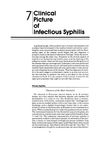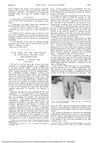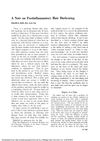 January 2024 in “The journal of investigative dermatology/Journal of investigative dermatology”
January 2024 in “The journal of investigative dermatology/Journal of investigative dermatology” AP-2α and AP-2β are crucial for healthy skin and hair.
53 citations,
August 2014 in “Cochrane library” Methotrexate is not proven effective for inducing remission in ulcerative colitis.
[object Object] 51 citations,
August 2015 in “Cochrane library” Methotrexate is not proven to maintain remission in ulcerative colitis.
 15 citations,
March 2021 in “Journal of clinical medicine”
15 citations,
March 2021 in “Journal of clinical medicine” Biologic treatments for Crohn's disease and ulcerative colitis can cause skin problems, and doctors should adjust treatment if these occur.
 40 citations,
May 1987 in “The Lancet”
40 citations,
May 1987 in “The Lancet” Minoxidil helps some bald men, but most lose hair again when stopping.
 6 citations,
November 2023 in “Clinical Pharmacokinetics”
6 citations,
November 2023 in “Clinical Pharmacokinetics” Ritlecitinib shows promise as a versatile treatment for various autoimmune and inflammatory diseases.
 19 citations,
August 2018 in “International Journal of Dermatology”
19 citations,
August 2018 in “International Journal of Dermatology” Lupus panniculitis of the scalp causes linear hair loss and needs ongoing treatment to prevent recurrence and lupus.
 1540 citations,
October 2008 in “Fertility and Sterility”
1540 citations,
October 2008 in “Fertility and Sterility” The report concludes that PCOS is mainly a condition of excess male hormones and its definition may change as new information is discovered.
53 citations,
January 2013 in “Journal of toxicologic pathology” The project created a standardized system for classifying skin lesions in lab rats and mice.
[object Object] 65 citations,
September 2014 in “Orphanet Journal of Rare Diseases” Different STUB1 gene mutations cause varied symptoms in autosomal recessive ataxias.
 15 citations,
July 2017 in “Hormones”
15 citations,
July 2017 in “Hormones” Genetic defects in the glucocorticoid receptor gene can cause conditions with abnormal sensitivity to stress hormones, and other factors may also affect this sensitivity.
7 citations,
July 2013 in “InTech eBooks” Oral lichen planus is a chronic disease causing mouth discomfort and sometimes needs immunosuppressive treatment.
 12 citations,
January 1984 in “Clinics in Dermatology”
12 citations,
January 1984 in “Clinics in Dermatology” The document concludes that syphilis has varied symptoms that are often missed, making clinical awareness crucial for diagnosis.
 May 2011 in “British Journal of Dermatology”
May 2011 in “British Journal of Dermatology” The 1891 epidemic skin disease was likely caused by arsenic poisoning, possibly from beer or fish.

Taking calcium may help elderly with osteoporosis, birth control with levonorgestrel doesn't increase heart attack risk, Salmonella can cause arthritis, a national ethics committee is recommended, and sulfasalazine might help with a hair loss condition.
 October 1961 in “Archives of Dermatology”
October 1961 in “Archives of Dermatology” Reassurance is important for postpartum hair shedding as it likely won't cause complete baldness.
 28 citations,
April 1936 in “Journal of the American Medical Association”
28 citations,
April 1936 in “Journal of the American Medical Association” Aloe vera healed severe skin damage and restored normal skin in five weeks.
 18 citations,
March 1984 in “BMJ”
18 citations,
March 1984 in “BMJ” Minoxidil helps hair regrowth in alopecia, but more research needed.
 9 citations,
June 1959 in “Archives of dermatology”
9 citations,
June 1959 in “Archives of dermatology” Hair can darken after inflammation and then return to its original color.
 5 citations,
October 2015 in “The American journal of pathology”
5 citations,
October 2015 in “The American journal of pathology” Mice with a mutated Dsg3 gene showed severe symptoms but not the typical blistering of pemphigus vulgaris.
 4 citations,
January 1987 in “Journal of The American Academy of Dermatology”
4 citations,
January 1987 in “Journal of The American Academy of Dermatology” A man with both skin lesions and lung cancer improved quickly with chemotherapy, suggesting the skin condition might be a reaction to immune system injury.
 January 2018 in “Elsevier eBooks”
January 2018 in “Elsevier eBooks” Topical imiquimod is as effective as 5-fluorouracil for treating actinic keratosis, with about a 5% risk of it turning into squamous cell carcinoma.
 122 citations,
November 1984 in “Journal of the American Academy of Dermatology”
122 citations,
November 1984 in “Journal of the American Academy of Dermatology” No single treatment is consistently effective for alopecia areata, and more research is needed.
 118 citations,
July 2005 in “Journal of Ethnopharmacology”
118 citations,
July 2005 in “Journal of Ethnopharmacology” Eclipta alba extract improved learning, memory, and stress-related ulcers in rats without affecting movement or causing anxiety.
 51 citations,
October 1981 in “British Journal of Dermatology”
51 citations,
October 1981 in “British Journal of Dermatology” Some patients developed skin inflammation after obesity surgery, and a medication called dapsone helped treat it.
 42 citations,
January 1998 in “BioDrugs”
42 citations,
January 1998 in “BioDrugs” Azathioprine's effectiveness and safety require careful monitoring and more research, especially regarding its use with corticosteroids and the role of TPMT status in patients.
 36 citations,
January 2006 in “Veterinary Dermatology”
36 citations,
January 2006 in “Veterinary Dermatology” Cyclosporin effectively and safely treated skin diseases in three pets with no side effects.
 36 citations,
October 1996 in “Dermatologic Clinics”
36 citations,
October 1996 in “Dermatologic Clinics” Mice are useful for researching human hair loss and testing treatments, despite some differences between species.
 18 citations,
April 2013 in “Inflammatory Bowel Diseases”
18 citations,
April 2013 in “Inflammatory Bowel Diseases” People with Inflammatory Bowel Disease often lose hair due to stress, medication side effects, or lack of nutrients, and treatment depends on the specific cause.
 17 citations,
January 2019 in “Dermatologic Therapy”
17 citations,
January 2019 in “Dermatologic Therapy” Tofacitinib is effective and safe for long-term treatment of severe alopecia areata, with many patients achieving complete hair regrowth.

























